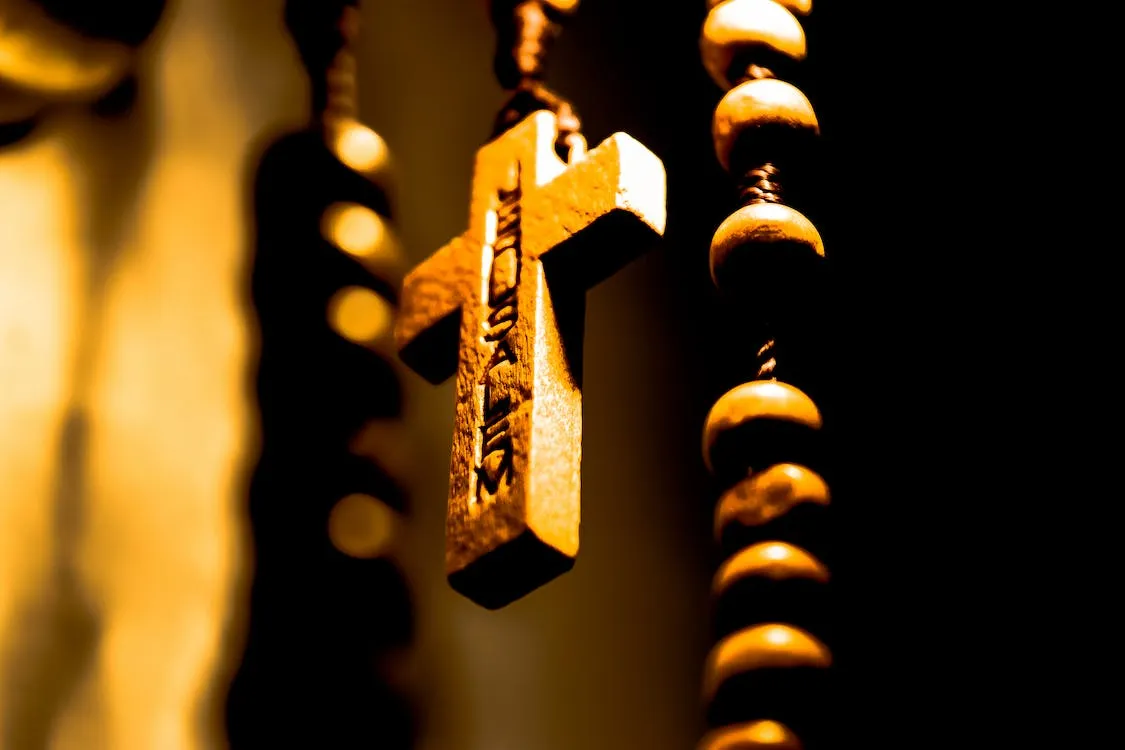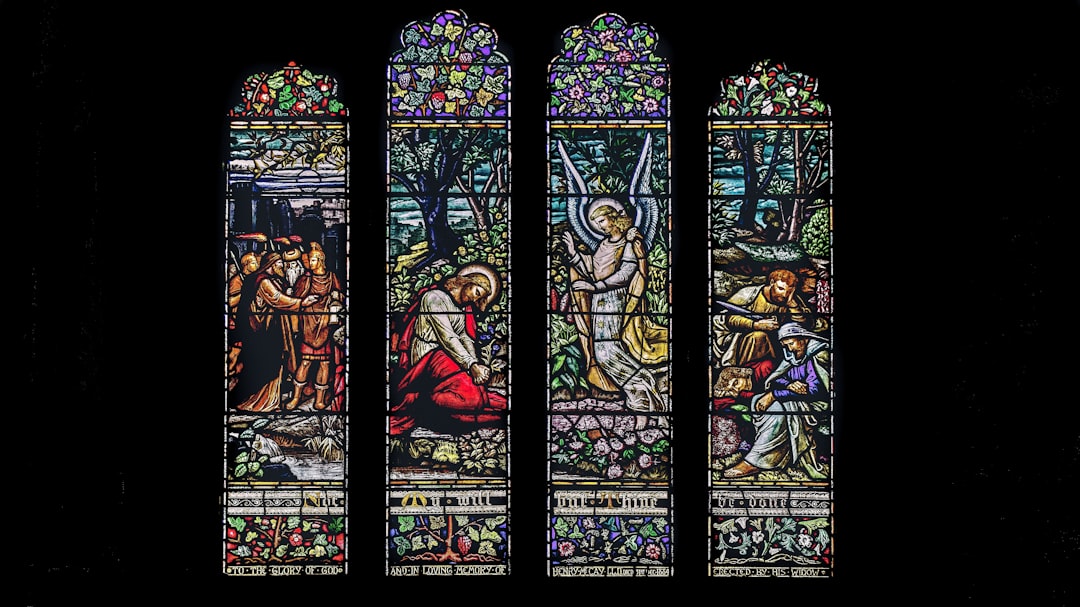Protestantism is one of the most influential and widespread forms of Christianity today, with a rich history dating back to the Reformation. In this blog post, we’ll take a closer look at the beliefs and traditions at the heart of Protestantism, explore the differences between Protestantism and Catholicism, and provide an overview of some of the many denominations within the faith. Whether you’re an expert on the subject or just starting to explore the world of religion, there’s sure to be something new and intriguing to discover here. Keep reading to learn more!
The Beginnings of Protestantism and Its Key Figures

Have you ever wondered about the origins of Protestantism and who the key figures were? The Protestant Reformation, a major event in Christian history, took place in the 16th century and had a profound impact on the world as we know it today.
The movement started with a Catholic monk named Martin Luther, who had concerns about the practices of the Catholic Church. Luther’s Ninety-Five Theses, which he posted on the door of a church in Wittenberg, Germany, questioned the authority of the Pope and the selling of indulgences (forgiveness of sins sold by the church). This sparked a debate that led to the development of several Protestant denominations.

John Calvin was another key figure in the Protestant Reformation. He established a church in Geneva, Switzerland, and developed a theological system known as Calvinism, which emphasized the sovereignty of God and the importance of predestination (the belief that God has already chosen who will be saved).
Other notable figures in Protestanism include John Wesley, the founder of the Methodist denomination, and William Tyndale, who was responsible for translating the Bible into English.
Overall, the Protestant Reformation was a movement that questioned the authority of the Catholic Church and paved the way for the development of many Protestant denominations. Its impact is still felt today, in the beliefs and practices of millions of Christians around the world.
Protestantism vs Catholicism: What’s the Difference?
If you’re hearing the term Protestantism for the first time, you may be wondering how it’s different from Catholicism. While both stem from Christianity, there are some significant differences between the two.
Firstly, the authority in each faith differs. In Catholicism, the authority lies with the Pope, who is considered to be the spiritual leader of all Catholics worldwide. On the other hand, in Protestantism, the Bible is seen as the ultimate authority in matters of faith and doctrine, and pastors are the spiritual leaders of their congregations.
Another stark difference between the two is their views on salvation. Catholicism sees good works coupled with faith as a means to achieve salvation; however, Protestants believe in salvation through faith alone.
Protestants also have a different view of sacraments than Catholics. While Catholics believe in seven sacraments (for example, baptism and confession), Protestants typically only recognize two: baptism and communion.
Additionally, Catholics place high importance on the traditions of the church, whereas Protestants tend to focus more on the gospel directly from the Bible and less on church tradition.
Finally, there are significant cultural differences too, with Catholics traditionally having more elaborate worship services, including chants and rituals, than most Protestant denominations. That being said, individual Protestant church services can also vary significantly, from more meditative and quiet services to livelier, passionate ones.

In conclusion, though both Christianity and with a shared foundation in the Bible, the differences between Protestantism and Catholicism are significant and diverse. In many ways, the differences often highlight how Christianity is adaptable to the everchanging needs of its parishioners, as expressions of the faith have evolved over time.
The Core Beliefs of Protestantism
As a Protestant, there are certain core beliefs that guide and shape the faith. Here are some key tenets of the Protestant faith that are central to our understanding of Christianity:
-
Salvation through faith alone: Protestants believe that salvation comes through faith in Jesus Christ alone, and not through any works or deeds. This doctrine of “faith alone” is based on the belief that Christ’s sacrifice on the cross was sufficient payment for our sins and that we are justified by faith in him.
-
Authority of scripture: Protestants affirm the Bible as the ultimate authority for Christian faith and life. We believe that the Scriptures are inspired by God and provide us with everything we need to know about God, ourselves, and how we should live. This means that we take the Bible seriously and seek to understand and apply its teachings in our lives.
-
Priesthood of all believers: Protestants believe that all believers are priests before God and that we do not need an intermediary such as a priest or pope to approach God. This means that we have direct access to God through faith in Jesus Christ and can approach him in prayer with confidence.
-
Grace and forgiveness: Protestants believe in the unmerited grace of God and his willingness to forgive us of our sins. We understand that we are unable to save ourselves and that salvation is a free gift of God. This means that we can approach God with humility and trust in his love and mercy.
-
Christ as the head of the church: Protestants affirm the importance of the church in our faith and believe that Christ is the head of the church. We see the church as a community of believers who gather together to worship, learn, and serve. We also affirm the importance of church leadership and the need for pastors, elders, and other leaders to guide and shepherd the church.
These core beliefs form the foundation of Protestant theology and are reflected in the practices and teachings of Protestant churches and denominations. As you explore Protestantism further, you may encounter differences in interpretation and practice, but these core beliefs provide a solid framework for understanding what it means to be a Protestant Christian.
Protestant Denominations: A Brief Overview
Protestantism is not a monolithic movement with one standard set of beliefs. Rather, it is made up of a variety of different denominations, each with its own particular beliefs, practices, and traditions. Some denominations have been around for centuries, while others are more recent in origin. In this section, we will provide a brief overview of some of the most prominent Protestant denominations.
One of the oldest and most influential Protestant denominations is the Lutheran Church. This denomination originated in the 16th century when Martin Luther, a German theologian, broke away from the Roman Catholic Church and started his own movement. Luther advocated for the authority of scripture and the doctrine of justification by faith alone, two key beliefs that continue to be central to Lutheran teaching today.
Another major Protestant denomination is the Anglican Church, also known as the Episcopal Church in the United States. The Anglican Church traces its origins back to England in the 16th century, when King Henry VIII broke away from the Roman Catholic Church and established his own church. Like the Lutheran Church, the Anglican Church places a high value on scripture as the ultimate authority, but it also places a strong emphasis on tradition and sacramental worship.
« Exploring the Powerful Gift of Repentance in the Bible
Unraveling the History of the Zealots in the Bible: A Tale of Political Turmoil and Religious Fanaticism. »
In the United States, the Baptist Church is one of the largest Protestant denominations. Baptists trace their roots back to the early 17th century in England, and their theology is characterized by a strong emphasis on individual faith and salvation. Baptists reject the notion of infant baptism and instead advocate for baptism by immersion for adult believers.
Another significant Protestant denomination is the Methodist Church. Like the Anglican Church, the Methodist Church traces its origins back to England in the 18th century, when John Wesley started a movement within the Church of England. The Methodist Church emphasizes the importance of personal holiness, and many Methodists believe in the potential for individuals to experience a second work of grace, known as sanctification.
Finally, the Pentecostal Church is a relatively new denomination that has experienced rapid growth in recent decades. The Pentecostal Church emphasizes the importance of the Holy Spirit and the belief that miraculous gifts of the Spirit, such as speaking in tongues, are still active in the church today. Pentecostals place a strong emphasis on evangelism and a personal experience of faith.
These are just a few of the many Protestant denominations that exist today. Although there are significant differences among these different groups, they all share a commitment to the gospel of Jesus Christ and a desire to follow him faithfully. By understanding these denominations and their beliefs, we can better appreciate the diversity and rich history of the Protestant movement.

The Role of Scripture in Protestantism
Understanding Protestantism means understanding one of its central tenets: the authority of Scripture. In Protestantism, the Bible is believed to be the primary source of Christian doctrine, with no other human authority having the final say. This belief sets it apart from the Catholic Church, where the teachings of the Pope and Church Tradition are viewed as equally important.
As a result, the Bible is at the center of all aspects of Protestantism – from sermons to worship to individual spiritual practices. Here are some ways Scripture plays a pivotal role in the faith:
-
It is the foundation for belief. Protestants believe that the Bible is the ultimate guide for understanding who God is, what He has done for us, and how we are called to live in light of this knowledge. Because of this, it is read and studied extensively by pastors and laypeople alike.
-
It informs theology and doctrine. Protestants derive their theological beliefs and doctrinal teachings from careful study of the Bible. This is why various Protestant denominations have different interpretations of Scripture on certain topics, and why theological debate is common within the faith.
-
It is the basis for preaching and teaching. In Protestant churches, the sermon is typically central to the worship service. Pastors often read from a passage of Scripture and use it as a springboard for a message that seeks to apply its lessons to everyday life.
-
It guides individual spiritual practices. In addition to being studied and preached, the Bible is also read by believers for personal spiritual development. Protestants often have personal devotionals, where they read small portions of Scripture each day and meditate on its meaning.
-
It is the centerpiece of worship. Scripture readings are often integrated into Protestant worship services through the use of Old and New Testament readings, Psalms, and other books. Some churches also include a sermon-style teaching as a regular part of their worship service.
As you can see, the Bible holds a very important place in Protestantism, and its central role is reflected in all aspects of the faith. From shaping the beliefs of a denomination to guiding individual spiritual practices, the Bible is revered as God’s Word and a source of endless wisdom and comfort for believers.
Celebrations and Holidays in Protestantism
Protestantism is steeped in traditions and customs that celebrate special days in the Christian calendar. These celebrations are not simply about observing the event, but they are also opportunities for believers to reflect on their faith and draw closer to God. In this section, we will discuss the most important holidays and celebrations in Protestantism.

One of the most important holidays in Protestantism is Christmas. Celebrated on the 25th of December every year, it marks the birth of Jesus Christ. Protestants commemorate the occasion by attending church services, singing carols, and reading the story of the nativity found in the Bible. Some churches even have a special midnight service on Christmas Eve.
Another important holiday is Easter, which coincides with the resurrection of Christ. It is a time for rejoicing, for it marks the victory of Christ over death. Protestants celebrate by attending church services, singing hymns, and participating in religious processions. They also exchange Easter eggs, a symbol of new life.
Good Friday is observed on the Friday before Easter Sunday. It is a day of mourning as it marks the day when Jesus was crucified. Many Protestant churches hold a special service, where they reflect on the sacrifice of Jesus and his death on the cross.
Another important celebration is Pentecost, which is celebrated seven weeks after Easter. It marks the descent of the Holy Spirit upon the apostles and the birth of the church. Pentecost is an occasion to celebrate the presence of the Holy Spirit in the lives of believers today.
Harvest festival is another important celebration in Protestantism. It is a day to give thanks for the bounty of the harvest and to acknowledge the provision of God. Protestant churches often decorate the altar with an abundance of fruits and vegetables. They may also donate some of the harvest to the needy.

In conclusion, celebrations and holidays are an essential part of Protestantism. They provide an opportunity for believers to celebrate their faith, reflect on their lives, and draw closer to God. These occasions are about more than just observing an event; they help to foster the sense of community and identity that is an essential feature of Protestantism.












